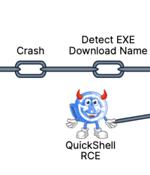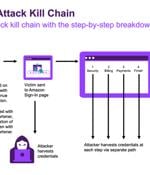Security News

Google has joined Microsoft in publishing intel on Iranian cyber influence activity following a recent uptick in attacks that led to data being leaked from the Trump re-election campaign. APT42 is largely relying on what Google's TAG calls "Cluster C" phishing activity - distinguished methods that have been in use since 2022, characterized by attempts to impersonate NGOs and "Mailer Daemon."

Google says it is taking a privacy-minded approach to the integration of AI features like the Gemini assistant on Android devices, implementing end-to-end protection to secure data in transit...

Google says it is taking a privacy-minded approach to the integration of AI features like the Gemini assistant on Android devices, implementing end-to-end protection to secure data in transit...

Google is notifying Russian YouTubers, bloggers, and publishers that their Adsense accounts are being deactivated and can no longer be used for advertising. [...]

As many as 10 security flaws have been uncovered in Google's Quick Share data transfer utility for Android and Windows that could be assembled to trigger remote code execution chain on systems that have the software installed. "The Quick Share application implements its own specific application-layer communication protocol to support file transfers between nearby, compatible devices," SafeBreach Labs researchers Or Yair and Shmuel Cohen said in a technical report shared with The Hacker News.

Cybersecurity researchers have discovered a novel phishing campaign that leverages Google Drawings and shortened links generated via WhatsApp to evade detection and trick users into clicking on bogus links designed to steal sensitive information. "The attackers chose a group of the best-known websites in computing to craft the threat, including Google and WhatsApp to host the attack elements, and an Amazon look-alike to harvest the victim's information," Menlo Security researcher Ashwin Vamshi said.

Black Hat State-sponsored cyber spies and criminals are increasingly using legitimate cloud services to attack their victims, according to Symantec's threat hunters who have spotted three such operations over recent months, plus new data theft and other malware tools in development by these goons. This piece of malware used Microsoft's Graph API to communicate with the attacker's command and control server, hosted on Microsoft OneDrive.

Google has confirmed plans to implement Web Monetization in Chrome, allowing website owners to receive micro-payments as tips or rewards for their content as an additional way to generate revenue. [...]

Google released 46 fixes for Android in its August security patch batch, including one for a Linux kernel flaw in the mobile OS that can lead to remote code execution. While Google never provides much detail in its monthly patch bulletins about how Android flaws are being abused in the wild, it does note that "There are indications that CVE-2024-36971 may be under limited, targeted exploitation."

Google has addressed a high-severity security flaw impacting the Android kernel that it has been actively exploited in the wild. That said, Clement Lecigne of Google's Threat Analysis Group has been credited with reporting the flaw, suggesting that it's likely being exploited by commercial spyware vendors to infiltrate Android devices in narrowly targeted attacks.